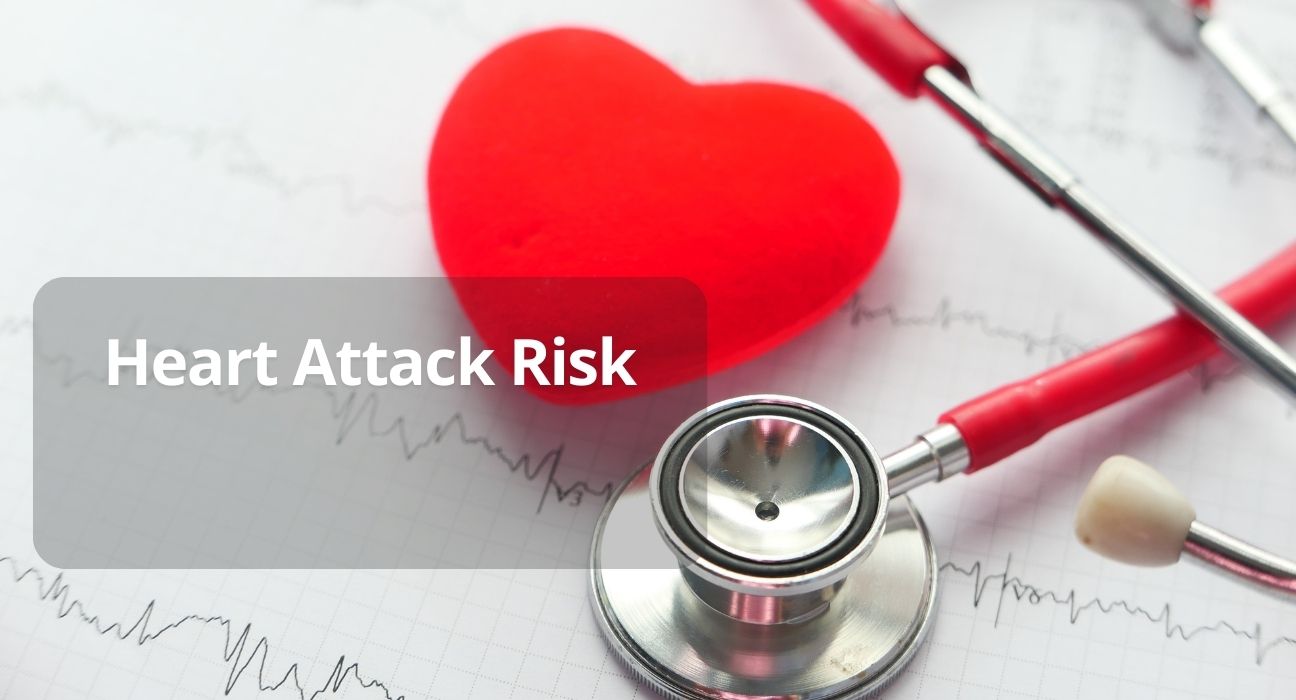Introduction
When it comes to maintaining a healthy heart, what you eat plays a crucial role. Diets high in certain foods can significantly increase the risk of heart attacks. It’s important to be aware of the food that risks heart attack and to consume these items in moderation or avoid them altogether. In this blog post, we will explore seven foods that could raise your heart attack risk and discuss how often you should eat them to maintain optimal heart health.
Processed Meats
Processed meats, including bacon, sausages, and deli meats, are notorious for their high sodium content, preservatives, and unhealthy fats. These components can lead to plaque buildup in your arteries, which over time increases your risk of a heart attack. For a heart-healthy diet, it’s best to consume processed meats sparingly. Instead, try incorporating more fresh, lean meats such as chicken or turkey into your meals. Plant-based protein options, like beans, lentils, and tofu, can also be excellent substitutes that are kinder to your heart. Making these small changes can have a significant positive impact on your cardiovascular health.
Sugary Drinks
Sugary drinks like soda, energy drinks, and sweetened coffee can wreak havoc on your heart health. High sugar intake is associated with obesity, type 2 diabetes, and heart disease. It’s best to avoid these sugary beverages or consume them very rarely. Instead, choose water, unsweetened teas, or other low-calorie drinks to stay hydrated and protect your heart.
Fried Foods
Fried foods, including fries, fried chicken, and doughnuts, are packed with unhealthy fats and calories that can elevate your heart attack risk. These foods are often cooked in oils high in trans fats, which are harmful to heart health. Regularly eating fried foods can lead to weight gain and clogged arteries, making it harder for your heart to function efficiently. To protect your heart, it’s important to limit your intake of fried foods. Try to restrict these indulgences to once a week or less. Healthier cooking methods, such as baking, grilling, or steaming, can be excellent alternatives. These methods retain the flavor and nutrients of your food without adding unnecessary fats. Additionally, consider air frying as a lower-fat option for achieving that crispy texture you love. By making these simple swaps, you can enjoy delicious meals while taking better care of your heart.
Foods High in Sodium
Foods high in sodium, such as canned soups and fast foods, can wreak havoc on your cardiovascular system by increasing blood pressure. A high-sodium diet not only elevates your risk of heart disease but also contributes to other serious health issues like stroke. The American Heart Association recommends consuming no more than 2,300 milligrams of sodium per day, with an ideal limit of 1,500 milligrams for most adults.
One of the biggest challenges is that many processed foods contain hidden sodium. Items like bread, pizza, and even some breakfast cereals can have more sodium than you might expect. It’s essential to read food labels carefully to keep your sodium intake in check.
Opt for fresh, whole foods whenever possible. Fresh fruits and vegetables are naturally low in sodium and can be seasoned with herbs and spices to add flavor without the extra salt. When cooking at home, use alternatives like garlic powder, lemon juice, or fresh herbs instead of salt to enhance the taste of your dishes.
If you rely on convenience foods, look for low-sodium or no-salt-added versions. Many brands now offer reduced-sodium options for products like soups, sauces, and snacks. When dining out, don’t hesitate to ask for your meal to be prepared without added salt. Restaurants are often willing to accommodate these requests, and your heart will benefit from the reduced sodium intake.
By being proactive and making these mindful choices, you can significantly reduce your sodium consumption and support better heart health.
Trans Fat-Containing Foods
Trans fats, often found in margarine, packaged snacks, and baked goods, are detrimental to heart health. These unhealthy fats can raise levels of bad cholesterol (LDL) while lowering levels of good cholesterol (HDL), leading to an increased risk of heart disease and heart attacks. Even small amounts of trans fats can have harmful effects, making it essential to minimize their presence in your diet.
Food manufacturers often use trans fats to extend the shelf life of products, making it crucial to read ingredient labels carefully. Look for terms like “partially hydrogenated oils,” which indicate the presence of trans fats. Many fast foods and fried items also contain trans fats, so opting for home-cooked meals where you can control the ingredients is a wise choice.
Incorporate healthier fats into your diet as substitutes for trans fats. Olive oil, avocado oil, and coconut oil are excellent options for cooking and baking. Foods rich in omega-3 fatty acids, such as salmon, flaxseeds, and walnuts, can also promote heart health and should be included in your regular diet.
Snack choices can have a significant impact on your intake of trans fats. Instead of reaching for packaged snacks and baked goods, opt for whole foods like fruits, vegetables, and nuts. When you do indulge in baked items, consider making them at home using healthier fat alternatives.
By paying attention to food labels and making informed choices, you can effectively reduce your consumption of trans fats and support better cardiovascular health. Making these small yet impactful changes can significantly decrease your heart attack risk.
Red Meat
Red meat, including beef, pork, and lamb, is known for its high content of saturated fats, which can elevate levels of bad cholesterol (LDL) in your blood. Elevated LDL levels contribute to the buildup of plaque in your arteries, increasing the risk of heart disease and heart attacks. To minimize these risks, it’s essential to consume red meat in moderation. Aim to limit your intake to a few servings per week and prioritize lean cuts, such as sirloin, tenderloin, or round cuts, which contain less saturated fat compared to other cuts. Additionally, consider trimming any visible fat before cooking to further reduce fat content.
Incorporating a variety of protein sources into your diet can also help manage your heart attack risk. Opt for plant-based proteins like beans, lentils, and chickpeas, which offer fiber and essential nutrients without the saturated fats found in red meat. Fish, particularly fatty fish like salmon and mackerel, provides heart-healthy omega-3 fatty acids that can help lower cholesterol levels and reduce inflammation.
When preparing red meat, choose cooking methods that do not add extra fats, such as grilling, baking, or broiling. Avoid frying or cooking with heavy sauces, as these can add unhealthy fats and calories to your meal. Using herbs and spices for seasoning instead of high-sodium marinades can enhance the flavor while keeping the dish heart-friendly.
By making these mindful choices, you can still enjoy red meat while supporting your heart health.
Ultra-Processed Snacks
Ultra-processed snacks like chips, crackers, and instant noodles are typically loaded with unhealthy fats, sugars, and sodium, all of which can contribute to poor heart health. These snacks often contain additives and preservatives that provide little nutritional value and can lead to increased risks of heart disease. Opting for healthier snack alternatives can make a significant difference. Fruits, vegetables, nuts, and seeds are excellent choices that offer essential nutrients and fiber without the added harmful ingredients. Whole-grain options like oatmeal, whole-grain crackers, and popcorn can also be satisfying and heart-friendly snacks. Reading food labels and choosing snacks with minimal ingredients can help you avoid the pitfalls of ultra-processed foods. Making these smarter snack choices can contribute to better heart health and overall well-being.
Conclusion
Taking proactive steps toward a heart-healthy diet can make a significant difference in your cardiovascular health. By being aware of the foods that can increase your heart attack risk, you can make more informed choices about what you eat. Incorporating more fresh, lean meats, plant-based proteins, and whole foods can help you avoid the harmful effects of processed meats, sugary drinks, fried foods, high-sodium items, trans fats, red meat, and ultra-processed snacks.
Instead of sugary beverages, opt for water or unsweetened teas. Swap fried foods for baked, grilled, or steamed options to cut down on unhealthy fats. Monitor your sodium intake by reading food labels and choosing fresh, whole foods seasoned with herbs and spices rather than salt. Replace trans fats with healthier alternatives like olive oil and omega-3-rich foods.
Limiting red meat consumption and choosing lean cuts can also contribute to better heart health. Diversify your protein sources with plant-based options and fatty fish. For snacks, turn to fruits, vegetables, nuts, seeds, and whole grains instead of ultra-processed options.
Small, mindful changes in your diet can have a profound impact on your heart. Combining these dietary adjustments with regular physical activity can further enhance your cardiovascular health and reduce the risk of heart attacks. By staying informed and making healthier choices, you can protect your heart and enjoy a better quality of life.








Leave feedback about this